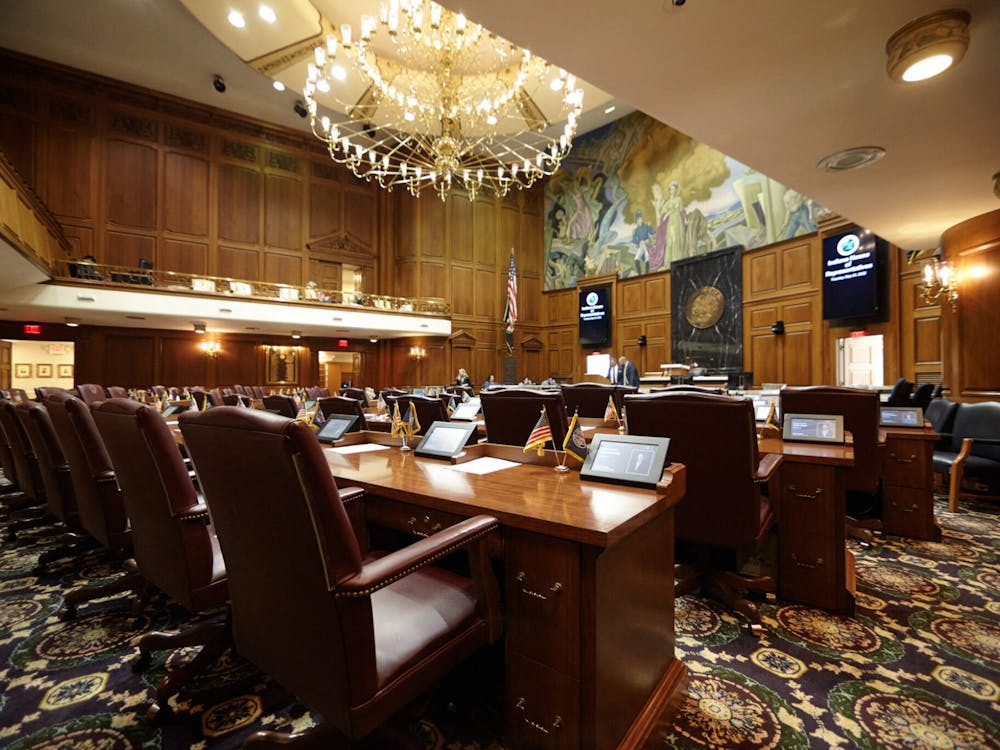INDIANAPOLIS — Union leaders and Democrats facing a barrage of labor-related proposals since the legislative session started in early January weren't able to do much to slow them down until House Democrats fled the state Feb. 22.
Now they're using the three-week-old boycott and rallies to fuel the showdown that carries high stakes for both parties.
Republican legislators aim to strictly limit collective bargaining for teachers, permanently ban union contracts for state workers and exempt many government construction projects from the state's prevailing wage law. They're looking to capitalize on the big majorities voters handed them in both chambers last November.
Democrats argue the GOP proposals are a wide assault on workers' rights that justifies their continued boycott. A uniting factor is the knowledge that Republicans control the process of redrawing all 150 Senate and House districts this year, which makes it difficult for Democrats to undo any legislation approved this year or next.
Republicans maintain their aim is to work with Gov. Mitch Daniels to improve Indiana's economy and education system — not to weaken unions, politically or in the workplace.
Republican House Majority Leader William Friend of Macy said the GOP lawmakers were elected by "people who want and expect some change" and were eager to take action.
"There was some pent-up hunger, anticipation that Republican ideas could move," he said.
The Democrats' walkout blocked one of those ideas — a "right-to-work" bill that would prohibit union representation fees from being a condition of employment at most private-sector companies, have fanned the flames of labor activists.
Democrats say many other proposals scattered throughout various bills are aimed at "union busting."
Sen. Karen Tallian, D-Portage, said during a Senate debate that the bill aimed at permanently banning collective bargaining for state employees was a "war on unions."
Tallian cited the bill's language that any union contract involving state employees "is contrary to public policy and is illegal, unlawful, unenforceable, void, and of no effect."
"Now how much more incendiary language can you put into a statute?" she said. "How much more clearly can they be in the declaration that this is a war on unions, and I mean all of them?"
Senate labor committee Chairman Phil Boots, R-Crawfordsville, said the bill was aimed at putting into law the collective bargaining ban Daniels implemented the day after he took office in 2005.
That action canceled labor agreements for about 25,000 state workers and reversed orders under Democratic governors permitting such contracts.
Teacher unions unhappy with the GOP agenda say they are being targeted with proposals to limit contracts with local districts to wages and wage-related benefits. A bill approved by a House committee would also prohibit payroll deductions by school districts for teacher union dues.
Boots said he wouldn't support a payroll deduction ban but that the limits on teacher union bargaining were needed along with other education proposals such as teacher merit pay and allowing state-funded vouchers for students to attend private schools.
"I don't think we get these other reform efforts put in place if we can't control the administration of the schools," he said.
Democratic Rep. Dennis Tyler of Muncie questioned why Republicans were pushing against unions when they frequently tout Indiana as having one of the best business climates in the U.S.
"What in the world do these things do to attract business, other than make it so employees have no say in the workplace and drive down wages?" Tyler said. "What the heck could be left?




